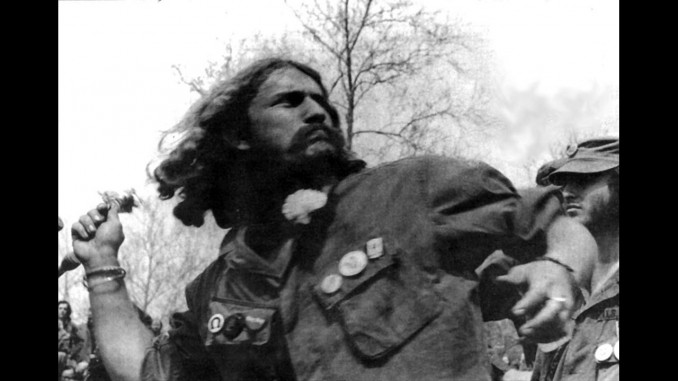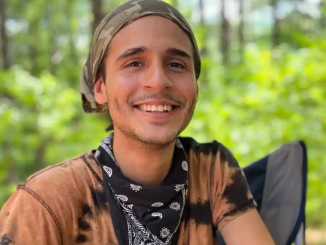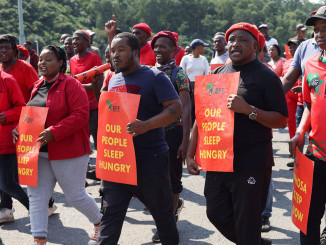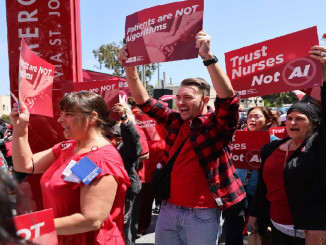
On June 1, 2024, the United States continues to support and finance Israel’s genocidal war against Palestinians. Protests against the war have simmered for months, and since mid-April, protests have exploded on college campuses as tens of thousands of young people in the U.S. and worldwide have slept on malls, been arrested, and protested at graduations calling for an end to the conflict.
At this moment of intense social unrest and criticism of our government during an unjust war, we look back at Vietnam Veterans Against the War, or VVAW. Much like the students who are currently protesting Zionist violence, the soldiers who fought in Vietnam were voices of dissent from within the belly of the beast of U.S. imperialism. And much like the students of today, the soldiers who protested the Vietnam War showed a courage and selflessness from which we can take inspiration.
Vietnam Veterans Against the War (VVAW) was formally founded on June 1, 1967 amidst the broad but disconnected movement of soldiers resisting the imperialist war on Vietnam. VVAW was founded by six veterans who met at an anti-war rally in New York City who then formalized their activity to try to connect and build the movement of soldiers against the war in a more systematic fashion. By 1970, the organization had nearly 1,500 members and was an effective force, spreading the message of the anti-war movement, already underway within the military. They participated in numerous events ranging from simulations of wartime conditions in Vietnam, publishing a newsletter, holding veteran rap sessions, organizing and carrying out major protests, as well as participation in student and campus protests.
Two of their events powerfully demonstrated both the inhumanity of the war and their conviction that they were obligated to do everything they could to stop it.
The first was the Winter Soldier Investigation, held in January and February of 1971 in Detroit. During the week of the investigation, more than 100 veterans shared their experiences of the brutality of the war. Stories of how, during basic training, their officers desensitized them to violence and dehumanized the Vietnamese people in preparation for killing them mixed with descriptions of brutal tortures and killings of Vietnamese in the field. The horrific stories and sheer volume of the atrocities that were presented made clear that the inhumanity of the war was not just the result of individual cruelty, but the intentional outcome of the conduct of the war. They were not the fault of any one soldier or even junior officer, but were instead caused by the prosecution of the war from the top down. While the mainstream media mostly ignored the event, it helped galvanize the soldiers who were already turning or had already turned against the war.
The second was the now famous week of protests in April of 1971, called Operation Dewey Canyon III, when more than one thousand veterans went to Washington to protest the war. They marched to Arlington National Cemetery to pay tribute to their dead comrades, heckled members of Congress who tried to lecture them about the war, and then set up camp on the National Mall, where they stayed for the next few days. When the Supreme Court ruled that their encampment was illegal and gave them only hours to disperse, most voted to remain and stayed on the mall, risking arrest. The next day more than 100 marched to the Supreme Court and rallied on its steps, clapping and chanting over and over again: “Bring them home, bring our brothers home…Bring them home, bring them home NOW!” 110 were arrested. The next day, more than 1,000 gathered on the steps of the capitol, where one by one hundreds of veterans (and, powerfully, some parents of dead soldiers) made statements denouncing the war, the government, and their actions in Vietnam, before throwing their medals over a barricade and onto the steps of the capitol. This powerful protest brought the soldiers movement into public view as never before, served to further turn public opinion against the war.
After Dewey Canyon, VVAW became the target of government surveillance and repression, as does any movement that challenges the actions of the capitalist state, particularly in times of war or foreign conflict. The organization nonetheless continued its activities and lasted well beyond the end of the war, when it focused on issues affecting veterans, including the widespread problems of post-traumatic stress disorder (P.T.S.D.), the health effects of Agent Orange, and more.
In 2024, as discontent with U.S. support for Zionist Israel simmers and a student movement continues, we remember Vietnam Veterans Against the War and the thousands of other soldiers who sacrificed much in order to bring the war to a halt. The organization and its members are a reminder of the ability of everyday people to make choices that can change history.
Although not focused on the VVAW specifically, for more detail on the larger anti-war movement within the military, we also recommend the excellent documentary Sir No Sir! For more historical detail on the larger movement against the war and student protest, check out our writings on the anti-war movement in the United States and the 1970 Kent State shootings.





